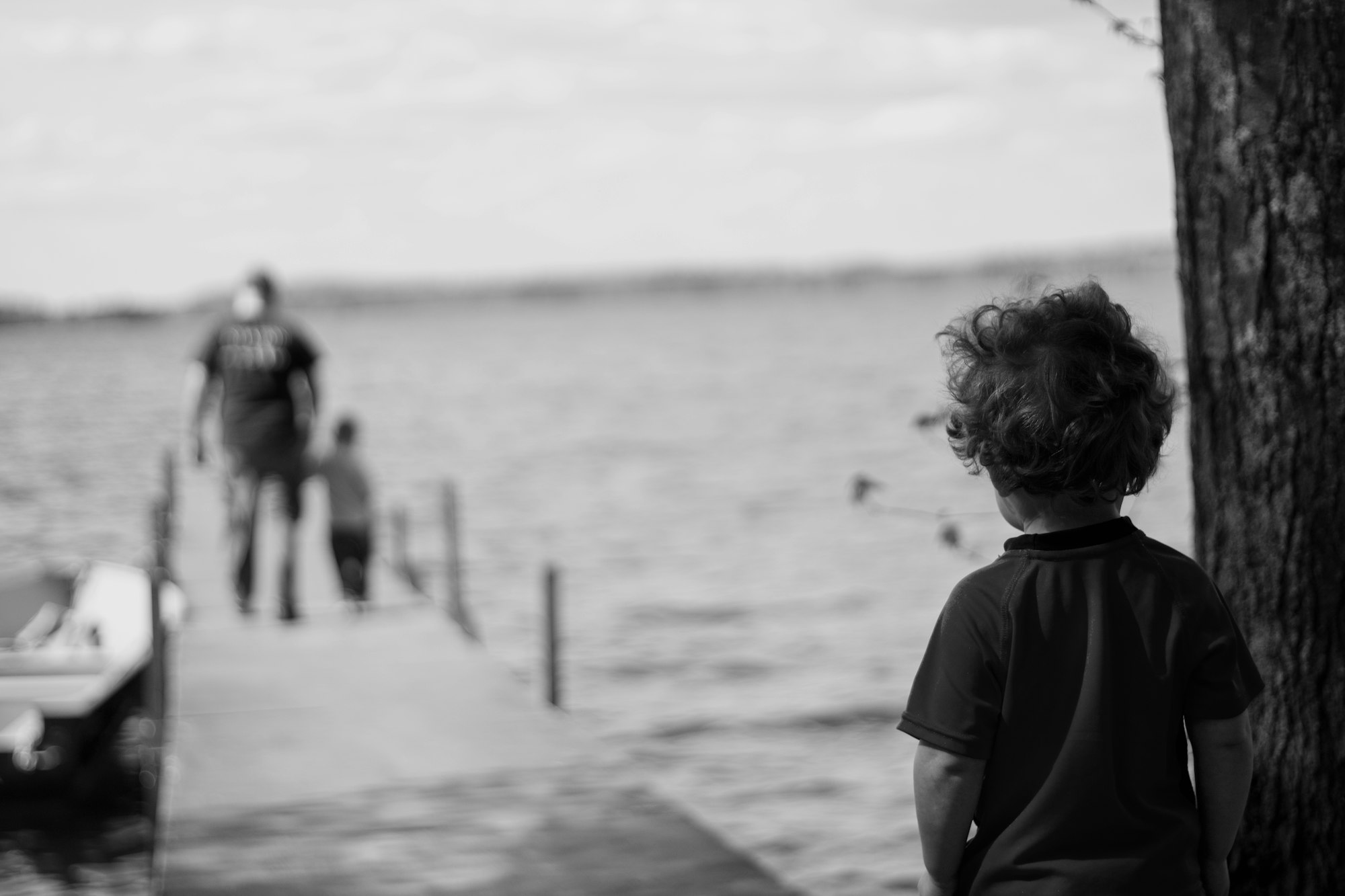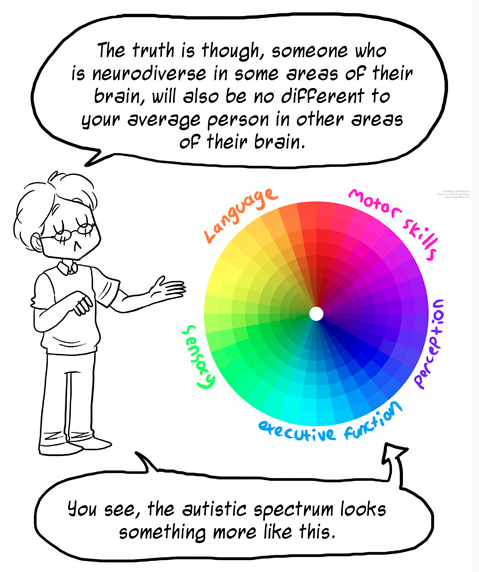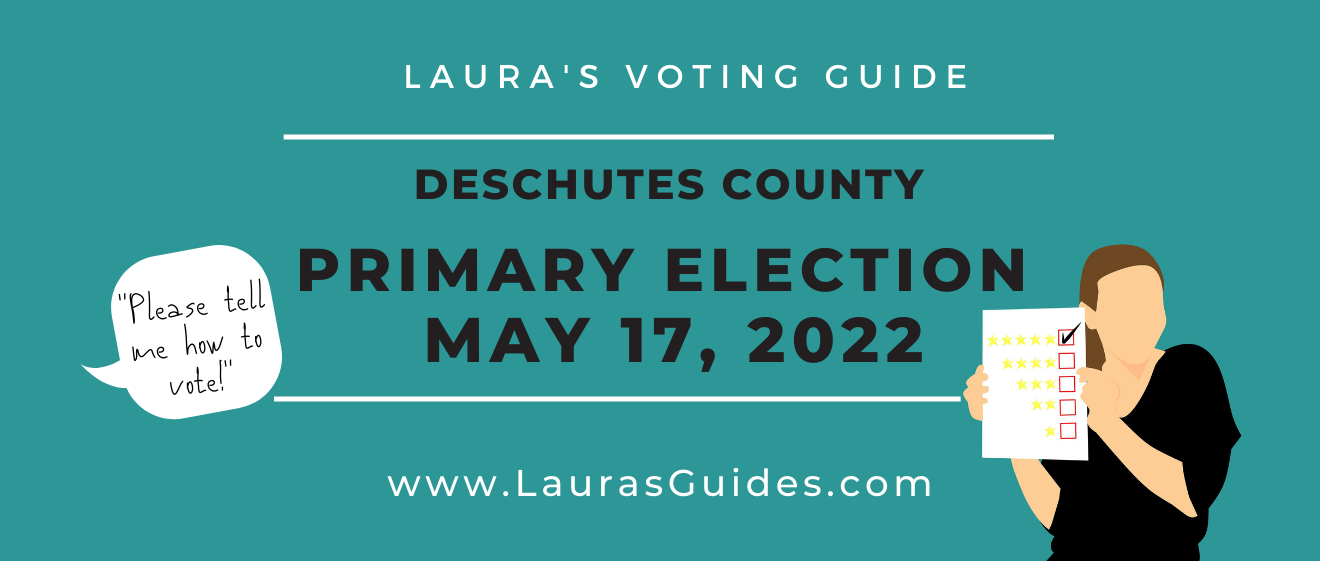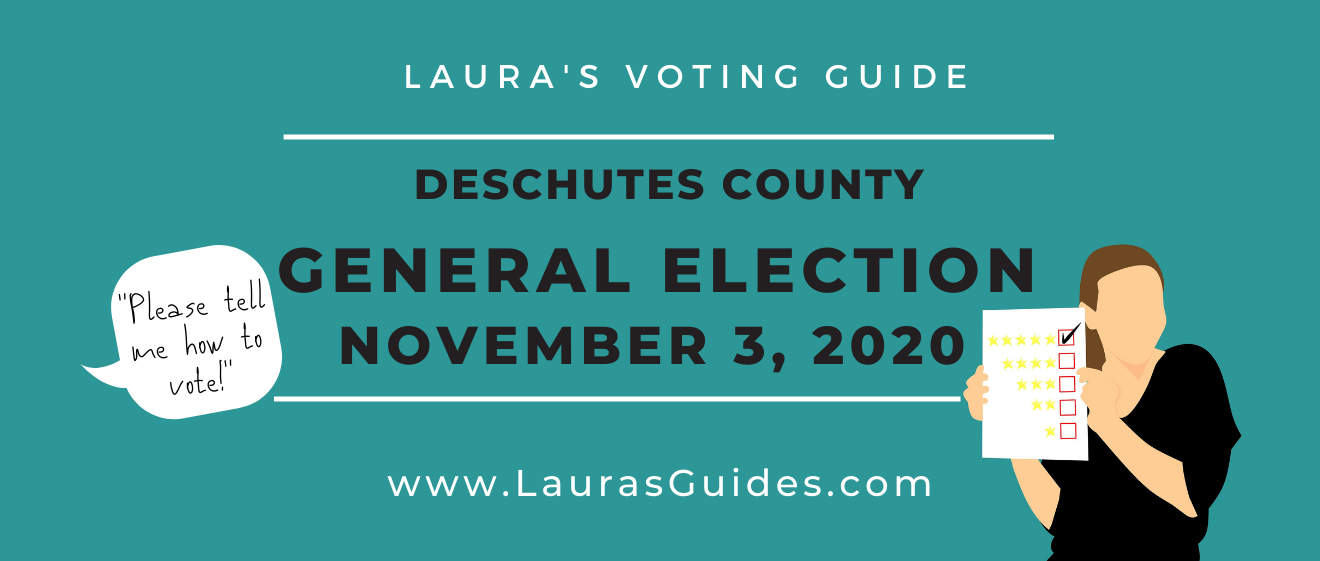
Hey Laura, my kid just got an Autism Spectrum diagnosis; now what?
When your child receives a new diagnosis, it can turn your world upside down. I think the most important thing you can work to internalize in this moment is that nothing essential has actually changed.
First Things First
If, in the packet the neuropsychologist sent home with you, there is information from Autism Speaks, throw it in the garbage where it belongs. Autism Speaks is an organization that pathologizes, tragedizes, and dehumanizes autistic people. It lobbies for the right to do harm to autistic people.
Autism Speaks doesn't listen to autistic people; it should not speak for them, either.
Instead, read this piece of advice to parents after an autism diagnosis from a fellow parent. It's concise and comforting and probably all that you can absorb right now.
Say No to ABA
Most of the autistic community decries Applied Behavioral Analysis therapy as dehumanizing and abusive. Many ABA apologists try to explain that a negative experience is because due to "ABA done incorrectly." But Alfie Kohn has offered a review of the damning ABA research, based on the core principles of ABA as it is supposed to be practiced.
For me, the conversation about ABA possibly being beneficial ends when we look at its behaviorism-based origin. Remember Pavlov's dogs who were conditioned to drool whenever a bell was rung? That's what behaviorism believes it can do to human brains as well: create the right system of reinforcement (punishment or reward) to extract the desired outcome. It is animal training. It doesn't take into consideration the vast variance of the human experience - a vastness that includes the wonderous complexities of the autistic brain.
Behaviorism applied to the human psyche is dehumanizing and inhumane.
The history of ABA is rotten to the core. The man who developed ABA (O. Ivar Lovaas) was involved with George Rekers in clinical work coined "The Sissy Boy Experiment" that used the same punishing tactics to "de-gay" young boys. Those boys grew up miserable and eventually killed themselves. In 2011, Anderson Cooper produced an exposé on this early history of "Gay Conversion Therapy," based on the remarkable investigative efforts of Jim Burroway. It's hard to read; please use discretion.
Conversion therapy - be it for sexual orientation or neurodiversity - is evil. Do not subject your child to forced compliance training, whether it is branded as ABA or not.
Unfortunately, because of the lobbying of Autism Speaks, ABA is one of the few therapies made universally accessible by insurance coverage. It also means that a lot of therapists will call what they do ABA in order to receive insurance coverage, which makes hard to figure out who has your child's best interest in mind. Be assured, there are pro-neurodiversity therapists and helpers out there, and good alternatives to ABA.
This article is a wonderful resource for how to find the right speech-language pathologist (SLP) for your autistic child. Its guidelines can be generalized to most any resource you're looking at: Is it pro-neurodiveristy? Does it honor the humanity and diginity of my autistic child?
With the right helpers on your team, you and your child can thrive.
Understanding Autism
When your child receives a new diagnosis, it can turn your world upside down. I think the most important thing you can work to internalize in this moment is that nothing essential has actually changed.
Your kid is still the same exact kid as they were pre-diagnosis.
This diagnosis is not a tragedy, it's a tool.
The autism diagnosis will help you understand your child better and therefore be a more compassionate and effective parent. The autism diagnosis has the power to open up doors that your family and your child need in order to survive in the neurotypical-biased world.
As one of my wise autistic friends says (and I paraphrase), "A diagnosis/label is a handle that helps us carry the weight of an atypical life."
As with any sudden change of expectations, it's important to acknowledge your emotional journey. It will probably be a mixture of relief, terror, grief, enlightenment, and confusion. It's okay to feel whatever you feel. It's never okay to treat your child as suddenly less human or less lovable or more of a burden because of their diagnosis. If you are struggling to be kind (to your child, yourself, or your partner), get help.
Below are a few of my favorite articles to help you frame your thinking about autism. I'm going to pull some quotes from them so that you get the gist without having to click through and inundate your brain with more data until you're ready.
Autism is not a shell around a "normal" child:
"I also know that you love your children dearly, fiercely, desperately. I know that you would give anything for your children. I know that you are trying to secure the best for your children, and while your hoping beyond hope for a cure for your Autistic children is wrong and damaging, it comes from that deep, deep love for your children that pushes you forward into every uncertain day, hoping and praying that you will find that magical thing or mystically perfect combination of things that will make your child stop being Autistic...
Stop trying to remove your child’s autism, and focus instead on helping your child be healthy and happy in the ways that make the most sense to your child while honoring your child’s life.
Trying to mold your child into a child they are not, as if they were wet clay, is a sure path away from a healthy and happy child.
Accepting autism, and loving and helping the child you have, as they are, for who they are, without shame or regret, is the first step on the path to helping your child blossom into a healthy, happy Autistic adult." [keep reading]
"It's a Spectrum" Doesn't Mean What You Think:
"Autism isn’t a set of defined symptoms that collectively worsen as you move “up” the spectrum.
In fact, one of the distinguishing features of autism is what the DSM‑V calls an “uneven profile of abilities.” There’s a reason people like to say that “if you have met one person with autism, you’ve met one person with autism.” Every autistic person presents slightly differently.
That’s because autism isn’t one condition. It is a collection of related neurological conditions that are so intertwined and so impossible to pick apart that professionals have stopped trying." [keep reading]
This comic offers another great alternative to "the spectrum:"

Good Reads
Welcome to Holland uses disability language, which many autistic people find offensive (because it's just a normal neurological variance). However, I'm including it here because I think it speaks to the grief of lost expectations that many parents feel when they're first starting out the autistic journey, and cautions them to embrace exactly where they are.
An absolutely riveting essay about a family who persevered with alternative communication to reach each other's hearts.
#1 must-read book for parents of non-speaking autistic children: The reason I jump, by Naoki Higashida. This helped me cultivate compassion for autistic meltdowns better than anything I've read.
This wonderful essay about the strain of invisible disabilities might help you build your empathy for all the hard work your autistic kid is putting forth. I send this one to new teachers a lot.
An Open Letter from an Autistic Child in Meltdown, Written by an Autistic Adult Who Still Melts Down From Time to Time is a deeply compassionate and insightful multiple choice style overview of a typical autistic meltdown.
Stones Across the River is specifically about 2e kids (children who are both highly gifted and have substantial deficits), which also applies to many autistic kids. I think it also works as a really important metaphor for understanding autistic burnout.
Strategies and Support Tactics
11 ways to make your autistic child's life easier.
Strategies for supporting a non-speaking communicator.
A checklist for identifying sources of aggression (including self-harm).
Be aware of parenting stress (especially for mothers of autistic children). You must create a support system that can help you carry the load.
Surround yourself with autism-affirming support and primary information sources. Get to know autistic adults (that's who you are raising, after all!). A great place to find them is on #AutisticTwitter, #AutismAcceptance, and #ActuallyAutistic. Here are some good follows:
@steve_asbell (creator of the Stimmy Kitty comics).
@autisticpastor (started #AllAutistics).
@kerima_cevik (started #AutisticWhileBlack).
@BeingKaylaSmith (started #AutisticBlackPride).
@lilririah (started #StayStimmy).
@jtknoxroxs (ADHD with an autistic son - started #AutisticJoy).
Here's a huge list of nonverbal/nonspeaking autistic writers!
Tal (@chaoticgaythey) started the My Child Is... series on twitter and has organized it here on tumblr.
Last word on parenting
Parenting is hard. Parenting well is even harder.
Quite honestly, after almost 14 years of parenting three kids with various neurodivergences (including but not limited to autism) and disabilities, I've come to believe that the type of self development and emotional rewiring that I've undergone while figuring out how to be the best parent I can be is the work that every parent of any kid ought to be commited to.
No child is the same, so there can be no one-size-fits-all method of parenting (seriously, throw out the mainstream parenting advice books that claim they have The Answer). But, good parenting does follow the same guidelines as good relationship-building:
- being attuned to the other person's needs (and not projecting your own onto them)
- being aware of where you stop and the other person begins
- being kind, respectful, responsible, and considerate
- making gracious space for growth and evolution
- offering unconditional love and support
Modeling these things in a relationship that isn't reciprocal in the way an adult-to-adult relationship should be, is very hard. A kid (autism notwithstanding) will help you discover where each and every one of your triggers is, and you'll need to reckon with those triggers privately so you do not destroy your child's soul.
This will require you to investigate your own internal biases and to rethink every parenting tactic that was passively instilled in you by your own experience as a child. And maybe that will help you to be a universally more patient and forgiving person. (I highly recommend therapy for this part.)
I believe that you are the best parent for your child. I'm cheering you on.


